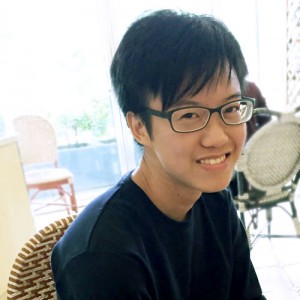The Archivist held the three remaining beads in her left hand. Images flickered across her visual cortex: an unknown woman’s face, a sunset on a planet she couldn’t name, the dazzling color of a sea she no longer had the words to express. The beads felt cool and impersonal in her fingers, though what they contained was neither. She had only these few memories left and she no longer remembered if they were hers or someone else’s.
Around her, the machine chugged and whirred. The metal tubing that encased her pod vibrated. The glowing core rose in front of her, spinning slowly around its vertical axis.
She twirled the bead containing the seascape between her fingers and dove in. The memory was a moment in time. The wind caressed her face and the briny scent of the sea filled her head. A white-capped wave was held just off shore in the instant before breaking, never to fulfill its potential. She had the sense of someone waiting for her on that unknown shore. The name of the sea was gone, like everything else she had once known, converted into power for the machine she’d been wed to.
She surfaced from the hold of the memory with effort. That sea and that person no longer existed. The world her people had inhabited had been scoured clean, its atmosphere stripped away and everything on the surface incinerated. Nothing had survived; nothing but the machine, buried deep below the crust near the cold, dead heart of the planet. When her organic memory had been scrubbed, they’d left the fate of her world with her so she would not forget her purpose.
The grinding groan of the alert tone sounded, and without thinking she placed the seascape bead into the receptacle near her hand. The bead circled around the outer edge and spiraled downward into the depths of the machine. Bit by bit the memory of the sea faded from her mind, until only a pale representation of it remained, and then a moment later that too was gone. She was left only with the impression that something precious had been taken from her, with no idea what it was.
Two left: a sunset and a woman.
Only two memories before she was nothing but a soulless cog in the machine that would unmake everything her people had ever been in order to start again.
“Status?” she asked the heated air around her.
Something churned just beyond her field of vision. “Offline.” The voice that had been her only companion for generations was toneless and flat.
She swirled the two remaining beads in her hand. The number of beads she needed to awaken the machine was exact. She wondered why the designers of such a marvel would cut it so close or depend on her to do this critical job at all. If she’d ever known the answer to those questions, she no longer did.
If she stopped putting beads in before the machine awakened it would cannibalize the pod that sustained her in an attempt to get the necessary power. She wasn’t certain how many beads her body, such that it was, could replace. Once her systems started shutting down a cascading failure would follow.
When she held the memory of the sunset, deep pink and orange streaks surrounded her. She perched on a rocky cliff. A lush valley unfurled below her, absorbing the colors of the bright sky. Someone sat next to her, just out of sight. A sense of peace pervaded the place. She dwelled in the memory until the alarm tone woke her from her contemplation.
The comfort of the sunset was the only solace she could remember. While it was true that she would no longer remember that the memory had ever been her haven, she would miss something. A yawning void grew with each piece of her that was forgotten.
When the alert rang the second time she closed her eyes and dropped the bead in the machine. She concentrated on how the sunset made her feel, but even as she tried to hold it in her mind the colors faded.
“Mountain. Sunset. Peace.” She said the words over and over as a litany, but it made no difference. The memory slipped away like water through her fist, and all she was left with was the aching emptiness. She snapped her hand shut around the remaining bead.
The woman in the memory had short dark hair that stood on end in a gravity-defying display that balanced chaos and order perfectly. Her eyes brimmed with tears and angled downward. A curved scar marked her left cheek, but didn’t mar her loveliness one bit. Her lips were slightly parted. She was close enough that the heat from her breath warmed the Archivist’s face. The woman with no name had been captured in the moment before a farewell kiss. There was no other way to resolve the adoration and acceptance mingled in her expression. Something terrible had been about to happen and they had run out of ways to fight.
The Archivist had no idea if the love in the unknown woman’s gaze was intended for her. She didn’t care. The emotion existed, and it was hers. She drifted in the moment just before the kiss for as long as she dared, and finally surfaced from the memory much later, gasping for air.
The alert tone sounded.
She clutched the final bead. The woman’s face floated before her, diaphanous and lovely. One kiss was all she had left.
The alarm rang again, louder and in two long bursts.
“You can’t have her.” She locked her fist around the bead, hoping that would curb her reflex to feed it to the machine.
The energy generated by her pod would be enough to replace one bead—it had to be. She wouldn’t get to see the new world she’d given up everything for, but she would be able to keep this last piece of herself.
She lingered in the kiss until the sound blasted three times, knocking her forcefully from the memory.
The bead port was so near her hand, and her arm wanted to make the motion, but she concentrated on keeping her hand shut tight. She’d never gone this far, so she had no idea how long she had to wait until there was no taking back the decision. She worried her resolve would slip.
Around her the machine churned and whirred. Nothing was out of the ordinary, nothing but her fist and a sense of dread she couldn’t shake.
A high-pitched whistle shrieked and surprised her so that she nearly dropped the last bead.
The relative silence in the wake of the terrible sound was haunting. She had the sense of motion in her peripheral vision, but she couldn’t turn to see what had moved. A grinding sound began soon after, and her pod vibrated.
There was an ominous clunk. Something slithered around the lower portion of her body, but she couldn’t see it within the metal and hoses that wrapped her. None of the memories she had left had prepared her for this. She managed not to panic, barely. The next breath she drew was labored.
A series of light chimes rang through the machine’s interior.
“Status,” she said.
The long pause that followed was made longer by the worry that she would go to her end never knowing if she’d doomed the project to failure.
“Online,” replied a voice she hadn’t heard before, more lifelike and feminine than the previous robotic one. “Resources have been reprioritized to support mission-critical utilities. Life support is offline.”
The note of sadness she detected had to be coming from her and not the machine. Her chest felt heavy. “Does it affect the chance of success?”
“By less than one one-thousandth of a percent. We are still well within operational parameters.”
“Good.” She sighed. “How long until the process starts?”
“I’ve already begun.”
“Oh, can you forecast completion yet?”
“No. Spinning up my systems will require a non-trivial amount of time. I won’t be able to calculate time to completion until I know how much has survived my hibernation and the loss of the atmosphere aboveground.”
“So I won’t know if it will work before I die.”
“It will work.”
“How do you know?”
“This project is my sole purpose for being, Archivist. I must believe it will succeed. The magnetic field will be restored, the atmosphere will be regenerated, and the planet will again support life.”
She smiled. Even that small movement drained her dwindling energy. “I think I would have liked you.”
“You would have.” Softness colored the voice again. Was it a trick of clever programming or her own sentimentality?
She laughed, surprised she remembered how. “That’s very presumptuous.”
“It’s a mathematical certainty. Your memories are cataloged and indexed in my database. Part of me is you.”
“I didn’t realize the memories would be retained.”
“The data contained in the beads was a byproduct of the energy transfer, but retaining them was deemed important by my programmers. They take up a very small portion of my total processing.”
“So we will carry on with you.”
“Yes. Nothing will be forgotten.”
The Archivist’s vision grew dim and her thoughts floated through a slow-moving haze. “That’s a relief.”
“Why did you initiate your shut down early?”
“I didn’t want to give up the last bead.”
“The memory held special value for you?”
“I don’t know for certain. It might not even be mine.” Secretly, she hoped the memory was hers. Maybe she’d somehow managed to organize the beads so that the ones that meant to most to her were last in the sequence before she’d forgotten.
“I may be able to tell you, if you would like to know.”
“It’s a goodbye kiss. The woman is leaving, or I am, and I don’t think we’ll ever see each other again. There’s a curved scar on her cheek, but that only makes her more beautiful to me. Her eyes are filled with love and loss, joy and regret. I want to tell her that I love her, but there’s no time. There’s only the hovering moment just before our lips touch.”
Another long pause, with only the sounds of the machine working around her to fill the growing darkness.
“Her name was Marley, and she loved you very much.”
The Archivist had trouble drawing her next breath. What remained of her chest ached. “I thought I would never know for sure if the kiss was mine. Thank you.”
“You’re welcome. Marley was one of my main programmers. My neural pathways are based on her logic, her biology. That connection is why you were chosen to be the Archivist.”
Her eyes stung with the memory of tears. “Why did I agree to this?”
“You know why.”
She’d always known why. It was the only way to save some small remnant of her people, of the world they’d built. “In the end I couldn’t let her go.”
“She would have appreciated that, though I’m sorry we won’t have more time together.”
The last of her vision faded as her brain began to shut down. “I’m scared,” she whispered, hoping her voice was still loud enough to register.
“Would you like me to tell you a story?”
“Yes, please.”
“A small white ship surged and fell on the waves of a turquoise sea. Marley stood in the salt-scented breeze, her feet spread wide to absorb the rolling motion of the deck. Her wife waited on the distant shore, just a speck at this distance…”
The Archivist closed her hand around the bead, summoning the image of Marley with tears in her eyes. Somewhere Marley waited for her. She leaned into the kiss, and let go.
© 2016 by Coral Moore
Author’s Note: Memories are such an integral part of our identities that I thought the idea of someone voluntarily giving up their memories one at a time for some grand purpose would be interesting to explore. While writing the story of the Archivist’s failing memory, the machine that would allow her world to sustain life again by eating her memories one at a time occurred to me and seemed to fit perfectly.
 Coral Moore has always been the kind of girl who makes up stories. Fortunately, she never quite grew out of that. She writes because she loves to invent characters and the desire to find out what happens to her creations drives her tales. Prompted by a general interest in how life works, she studied biology. She enjoys conversations about genetics and microbiology as much as those about vampires and werewolves. Coral writes mainly speculative fiction and has a Master of Fine Arts in Writing from Albertus Magnus College. She is a 2013 alum of the Viable Paradise writer’s workshop. She has been published by Dreamspinner Press, Evernight Publishing, and Vitality Magazine. She also received an Honorable Mention in the Writers of the Future contest for the fourth quarter of 2014. Currently she lives in the beautiful state of Washington with the love of her life and two canids.
Coral Moore has always been the kind of girl who makes up stories. Fortunately, she never quite grew out of that. She writes because she loves to invent characters and the desire to find out what happens to her creations drives her tales. Prompted by a general interest in how life works, she studied biology. She enjoys conversations about genetics and microbiology as much as those about vampires and werewolves. Coral writes mainly speculative fiction and has a Master of Fine Arts in Writing from Albertus Magnus College. She is a 2013 alum of the Viable Paradise writer’s workshop. She has been published by Dreamspinner Press, Evernight Publishing, and Vitality Magazine. She also received an Honorable Mention in the Writers of the Future contest for the fourth quarter of 2014. Currently she lives in the beautiful state of Washington with the love of her life and two canids.If you enjoyed the story you might also want to visit our Support Page, or read the other story offerings.

 Joshua Gage is an ornery curmudgeon from Cleveland. His first full-length collection, breaths, is available from VanZeno Press. Intrinsic Night, a collaborative project he wrote with J. E. Stanley, was published by Sam’s Dot Publishing. His most recent collection, Inhuman: Haiku from the Zombie Apocalypse, is available on Poet’s Haven Press. He is a graduate of the Low Residency MFA Program in Creative Writing at Naropa University. He has a penchant for Pendleton shirts, rye whiskey and any poem strong enough to yank the breath out of his lungs.
Joshua Gage is an ornery curmudgeon from Cleveland. His first full-length collection, breaths, is available from VanZeno Press. Intrinsic Night, a collaborative project he wrote with J. E. Stanley, was published by Sam’s Dot Publishing. His most recent collection, Inhuman: Haiku from the Zombie Apocalypse, is available on Poet’s Haven Press. He is a graduate of the Low Residency MFA Program in Creative Writing at Naropa University. He has a penchant for Pendleton shirts, rye whiskey and any poem strong enough to yank the breath out of his lungs. 1. Max Max: Fury Road
1. Max Max: Fury Road 2. Star Wars: The Force Awakens
2. Star Wars: The Force Awakens_poster.jpg) 3. Inside Out
3. Inside Out 4. The Martian
4. The Martian 5. Ex Machina
5. Ex Machina Davian Aw’s writing has appeared or is forthcoming in Daily Science Fiction, Stone Telling, LampLight and Star*Line. He also wrote roughly 240,000 words of Back to the Future fan fiction as a teenager and has never been that prolific since. Davian is a double alumni of the Creative Arts Programme for selected young writers in Singapore, where he currently lives with his family and a bunch of small plants.
Davian Aw’s writing has appeared or is forthcoming in Daily Science Fiction, Stone Telling, LampLight and Star*Line. He also wrote roughly 240,000 words of Back to the Future fan fiction as a teenager and has never been that prolific since. Davian is a double alumni of the Creative Arts Programme for selected young writers in Singapore, where he currently lives with his family and a bunch of small plants.


